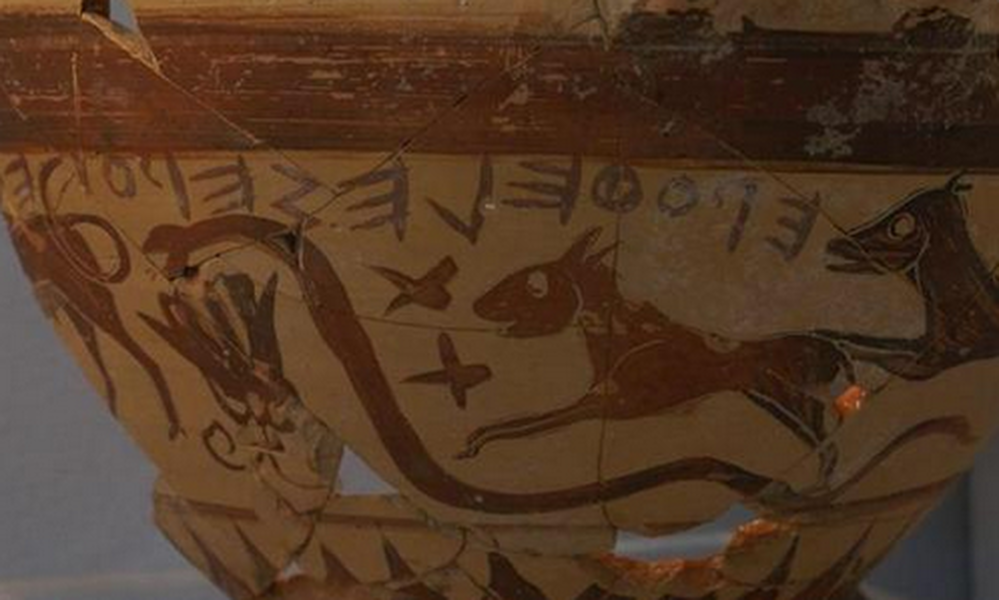This ancient Greek wine cup may have the earliest Greek depiction of constellations


A free daily email with the biggest news stories of the day – and the best features from TheWeek.com
You are now subscribed
Your newsletter sign-up was successful
Ancient Greek drinking cups and vessels have plenty of interesting images painted on them: mythological figures, a lively symposium, or even people vomiting. But new research suggests that one wine cup may have one of the earliest known Greek depictions of constellations.
The skyphos — a.k.a., a two-handed wine cup — in question dates to 625 B.C.E. and is on display at Greece's Lamia Archaeological Museum. The cup, which was found in a trench near the seventh-century acropolis of Halai, north of Thebes, was thought to depict a "random assortment of animals," Live Science reports. But in a study published in the journal Hesperia, researchers at the University of Missouri suggest that the animals aren't random at all, but are actually stellar constellations.
A third of the skyphos, including one of the handles, has not been located, but the remaining fragments depict a bull, a snake, a dolphin, a panther or lion, a scorpion, and a "hare or small dog," according to Live Science. John Barnes, one of the study's researchers, told Live Science the collection of animals is "atypical" — a dolphin with a bunch of land animals isn't exactly a traditional hunting scene — which inspired his research. He suspects that the animals are arranged not as they appeared in the night sky, but according to the four seasons the constellations represent.
The Week
Escape your echo chamber. Get the facts behind the news, plus analysis from multiple perspectives.

Sign up for The Week's Free Newsletters
From our morning news briefing to a weekly Good News Newsletter, get the best of The Week delivered directly to your inbox.
From our morning news briefing to a weekly Good News Newsletter, get the best of The Week delivered directly to your inbox.
The study's findings could have implications for other ancient works of art, too. Barnes told Live Science that other ancient depictions of animals may actually be of constellations, which could "hold clues to what the early Greeks knew about astronomy." Most of historians' current understanding about Greek astronomy comes from literary texts rather than archaeological evidence, since depictions of the sky on Greek pottery are "relatively rare," Live Science notes.
A free daily email with the biggest news stories of the day – and the best features from TheWeek.com
Meghan DeMaria is a staff writer at TheWeek.com. She has previously worked for USA Today and Marie Claire.
